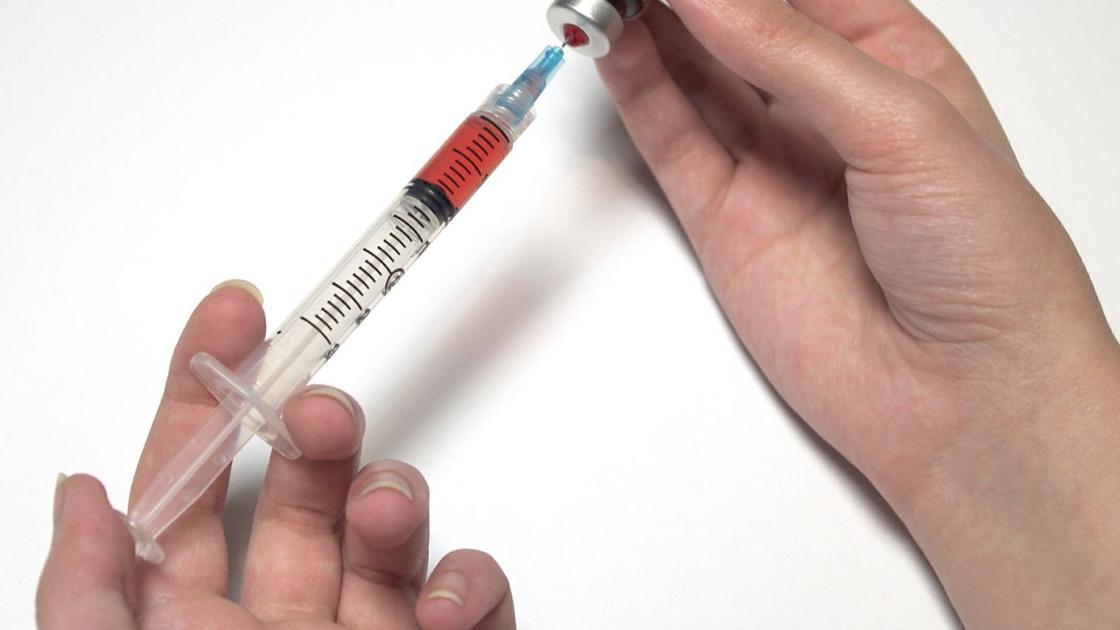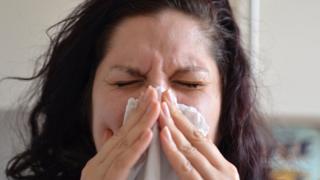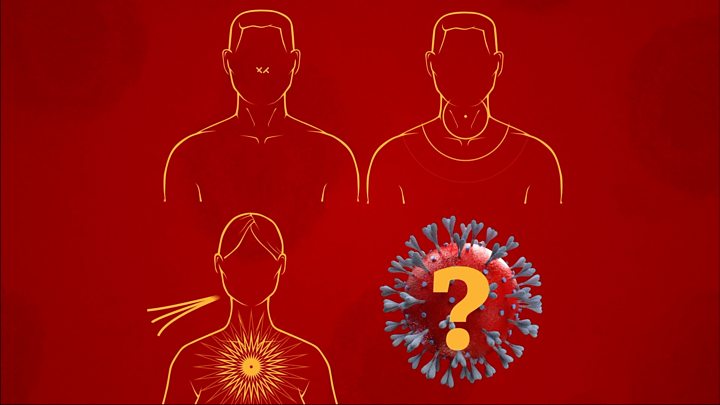Mustard Plaster: Does It Work, Safety, Other Remedies - Healthline
Mustard Plaster: Does It Work, Safety, Other Remedies - Healthline |
- Mustard Plaster: Does It Work, Safety, Other Remedies - Healthline
- Ask the Doctors: Flu shots especially important in COVID-19 era - Lompoc Record
- Study shows heating in vaping device as cause for lung injury - Times of India
- Covid symptoms: Is it a cold, flu or coronavirus? - BBC News
- Illinois lawmaker tests positive for COVID-19, quarantines - Huron Daily Tribune
| Mustard Plaster: Does It Work, Safety, Other Remedies - Healthline Posted: 30 Sep 2020 08:13 AM PDT [unable to retrieve full-text content]Mustard Plaster: Does It Work, Safety, Other Remedies Healthline |
| Ask the Doctors: Flu shots especially important in COVID-19 era - Lompoc Record Posted: 29 Sep 2020 10:30 AM PDT  Dear Doctors: I'm 23 years old and hardly ever get sick, not even a cold. I usually skip getting a flu shot, but my dad keeps telling my brother and me that it's really important to get one this year. Can you explain why? Is it going to protect us against the coronavirus? Dear Reader: Kudos to your dad for spreading the word about flu shots. Although the annual flu shot won't safeguard against the novel coronavirus that causes COVID-19, it will add an important measure of protection during a particularly perilous flu season. As many of you already know, there can be a great deal of overlap in symptoms of the flu and COVID-19. Both are respiratory illnesses that affect the lungs and interfere with the ability to breathe. Symptoms in each can include fever, chills, body aches, shortness of breath, sore throat, headache, cough, chest congestion, difficulty breathing and fatigue. Both the flu and COVID-19 can lead to pneumonia, hospitalization and even death. During last year's flu season, 490,600 people were hospitalized, and 34,200 people died. And even when it's not life-threatening, the flu guarantees a week or two of misery. As we said earlier, a flu shot won't protect against the novel coronavirus. However, it does reduce the risk of becoming infected with the influenza virus. Some people do get the flu despite having had the vaccine. However, they often have milder symptoms and shorter illnesses than those who go unvaccinated. And this year, with the spread of COVID-19 not yet under control, it's important to do everything we can to make sure medical resources are available for those who are the most seriously ill. It's quite possible we'll see another surge of COVID-19 this winter. With health care workers and facilities already overburdened, we should do everything we can to lessen the strain. The Centers for Disease Control and Prevention recommend that everyone 6 months of age and older be vaccinated against the flu each year. Inactivated influenza vaccines are approved for children as young as 6 months. That's important because children under the age of 5, and particularly those younger than 2, are at high risk of developing serious complications when they become ill with the flu. That includes ear infections, dehydration and pneumonia. Your child's health care provider will advise you on the appropriate vaccine for your child. Most people get a standard flu shot. Adults 65 years and older, whose immune systems have slowed down, are urged to get the high-dose vaccine formulated specifically for senior citizens. The good news is that flu shots are already widely available. They're free with most types of insurance and are often available at discounted rates at flu shot clinics. Free flu shots are also available through community organizations and public health departments. For flu shot locations in your area, visit vaccinefinder.org. Sign up now to get the most recent coronavirus headlines and other important local and national news sent to your email inbox daily. |
| Study shows heating in vaping device as cause for lung injury - Times of India Posted: 30 Sep 2020 11:14 AM PDT  The findings were consistent, with or without the use of nicotine, vitamin E oil or tetrahydrocannabinol (THC), which have previously been thought to contribute to the life-threatening respiratory problem. The early results, published in the Journal of the American Heart Association by researchers from the University of California, Irvine (UCI) School of Medicine and the Huntington Medical Research Institutes (HMRI), were observed during a larger study designed to explore the effect of e-cigarette and other vaping product use on the cardiovascular system. While conducting experiments, researchers observed eC or vaping product use-associated lung injury (EVALI) immediately after switching from a vaping device with a stainless steel heating element, to one that used nickel-chromium alloy (NC). "The results were so impactful, we felt it imperative to release the initial findings early so that electronic cigarette users could be cautioned sooner, especially considering E-cigarette users are at increased risk of Covid-19," stated senior author Robert A Kloner, MD, PhD, chief science officer for HMRI and professor of medicine at USC. The switch in devices occurred in September 2019, when the eC device the team was using went off-market and a substitute device was offered as an alternative. The new device was physically compatible with the original exposure system, but the heating element changed from stainless steel (SS) to a nickel chromium alloy (NC). "Within an hour of beginning an experiment, we observed evidence of severe respiratory distress, including laboured breathing, wheezing and panting," said Michael Kleinman, PhD, professor of occupational and environmental medicine at UCI School of Medicine and member of the UCI Center for occupational and environmental health. "After analyzing lung tissue from subjects in the study, we found them to be severely compromised and observed other serious changes such as lung lesions, red blood cell congestion, obliteration of alveolar spaces, and pneumonitis in some cases." The current research aimed to study the impacts of breathing in E-cigarette vapours on heart function in a well- established pre-clinical experimental model. Over the course of nearly a year, none of the subjects exposed to vapours from the stainless steel devices, both with and without additives, contracted respiratory distress and the only one showed a less than 10% area of inflammation in the lungs. Once the new eC device was introduced, affected subjects showed severe respiratory distress, with laboured breathing, wheezing and panting. The lung injury occurred without nicotine, THC, or Vitamin E additives; and may also have been related to the higher wattage of power settings on the E-cigarette devices. These preliminary studies will be followed up with additional future studies to systematically try to determine the cause of the lung problem. "While further research is needed, these results indicate that specific devices and power settings may play a key role in the development of EVALI as much as the additives do," said Kloner. "The harms associated with E-cigarettes and vaping simply cannot be overstated." Vaping has been proven to cause increased blood pressure, endothelial dysfunction, and the risk of myocardial infarction and stroke. Heating elements in commercially available eC are usually made of stainless steel, nickel chromium or nichrome, Kanthal nickel, or titanium. A condition, which was dubbed "E cigarette or vaping product use-associated lung injury" (EVALI) was recognised in the United States in June 2019 and peaked in September 2019. In March 2020, there were 2,800 US cases of EVALI and 68 deaths reported. Patients were typically found to be young males and users of E-cigarettes or vaping products whose CT scans revealed lung inflammation and injury. Of note, EVALI can mimic many of the features of Covid-19 pneumonia. |
| Covid symptoms: Is it a cold, flu or coronavirus? - BBC News Posted: 17 Sep 2020 12:00 AM PDT  Image copyright Getty Images Image copyright Getty ImagesColds, flu and Covid-19 are caused by different viruses, but can have similar symptoms. It can be hard to judge which one you may have. Most people who feel ill with coronavirus will have at least one of the key symptoms:
So what do you need to know about other things you may catch in the coming months? Does a fever mean I have coronavirus? Media playback is unsupported on your device A high temperature is 37.8C or above. A fever like this can happen when the body is fighting off any infection - not just coronavirus. It is best to use a thermometer to take a measure. But if you don't have one, check if you, or the person you are worried about, feels hot to the touch on the chest or back. Although fever is a key coronavirus symptom, it could be flu or a different infection. A high temperature is unlikely with a cold. If you have a fever, arrange a coronavirus test - you can use the NHS 111 coronavirus service online. What about a cough?If you have a cold or flu you may well have a cough, along with other symptoms. Flu usually comes on suddenly and sufferers will often experience muscle aches, chills, headaches, tiredness, a sore throat and a runny or stuffed nose, along with the cough. It feels worse than a heavy cold. Colds tend to develop more gradually and are less severe, although they do still make you feel unwell. Along with a cough, there may be sneezing and a sore throat and runny nose. Fever, chills, muscle aches and headaches are rare. A coronavirus cough means coughing a lot for more than an hour, or three or more coughing fits or "episodes" in 24 hours. If you usually have a cough because of a long-standing medical condition like COPD, it may be worse than usual. You should get tested for coronavirus if you develop a new, continuous cough. What do loss or change to smell or taste mean?These are key symptoms of coronavirus and mean you should get a test. It could still be that you have a simple cold. But you need to check, even if you don't feel unwell, to avoid the risk of spreading the virus.
Does sneezing mean I've got coronavirus?Sneezing is not a symptom of coronavirus, and unless you also have a fever, cough or loss of smell and taste, you do not need a test. Sneeze droplets can spread infections though, so catch them in a tissue, put it in the bin and then wash your hands. Remember Hands. Face. Space to help stop the spread of coronavirus and other illnesses:
More people in England are being offered a free flu jab this year too in the run-up to winter. How about a runny or blocked nose?As we head into winter and with children back to school and more workplaces open, lots of people will be getting colds. A runny nose is not a reason to get tested for coronavirus, says NHS Scotland. Data from an app that has been monitoring Covid-19 symptoms, reported by UK users, suggests children present less often with respiratory symptoms and are more likely to be suffering from fever, headaches, fatigue and skin rashes. What if I am very unwell?People with coronavirus have a wide range of symptoms, ranging from mild to severe, although some will have none at all, but can still be infectious. Symptoms may appear up to two weeks after exposure to coronavirus, but usually around day five. Feeling breathless can be a sign of a more serious coronavirus infection. If you are having trouble breathing, contact your doctor online or over the phone, or the NHS 111 online coronavirus service. If you are very worried about sudden shortness of breath ring 999. And the NHS advises:
|
| Illinois lawmaker tests positive for COVID-19, quarantines - Huron Daily Tribune Posted: 21 Sep 2020 09:51 AM PDT 
ROUND LAKE BEACH, Ill. (AP) — An Illinois lawmaker has tested positive for COVID-19, his office announced Monday. State Rep. Sam Yingling tested positive last week and has been quarantined at his home in Grayslake, his office said a statement. The 40-year-old Democrat experienced significant sinus congestion and drainage, symptoms he thought at first to be related to his allergies, the statement said. But those symptoms quickly evolved and he experienced a sore throat, cough, chest congestion, headache, fatigue, and body aches, it said. Yingling said once he learned he'd tested positive, he notified anyone he'd knowingly been in contact with and encouraged them to get tested. |
| You are subscribed to email updates from "chest congestion" - Google News. To stop receiving these emails, you may unsubscribe now. | Email delivery powered by Google |
| Google, 1600 Amphitheatre Parkway, Mountain View, CA 94043, United States | |
Comments
Post a Comment